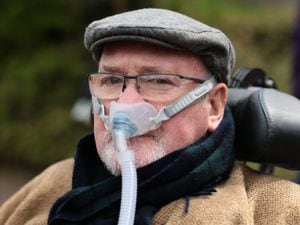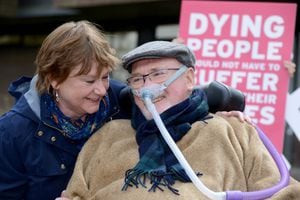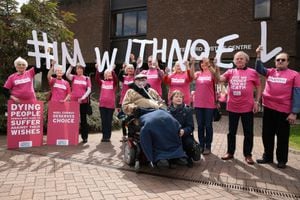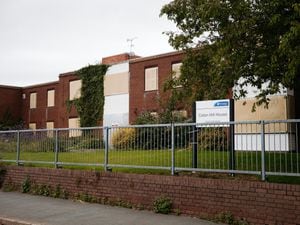Noel Conway right-to-die case: Judges to rule on possible appeal for Shrewsbury man
Three Supreme Court judges will rule next week on whether a terminally ill Shropshire man can appeal against Britain’s laws on assisted dying.

An urgent oral hearing will be held at the country’s highest court in London into the case of Noel Conway, from Shrewsbury.
The Supreme Court received an application for permission to appeal in a case that questions whether section 1(2) of the Suicide Act 1961, which makes assisting suicide a crime, is compatible with the European Convention on Human Rights.
Mr Conway was diagnosed with a form of motor neurone disease in November 2014. The 68-year-old has to use a wheelchair and requires ever-increasing levels of assistance with daily life, including breathing, eating and bodily functions.
With a prognosis of six months or less to live, Mr Conway now wants the option of taking action to end his life peacefully, with the assistance of the medical profession.

The only alternatives at present are for him to remove his ventilator to hasten his death, a potentially painful suicide attempt, or to let nature take its course – a possibly drawn-out experience.
When a previous appeal for a judicial review into the issue was rejected at the Court of Appeal in July, Mr Conway vowed to fight the case.
“It is barbaric to force me to decide between these unacceptable options,” he said at the time.
Deteriorating
Due to his deteriorating condition, the Supreme Court is ‘aware of the urgency of the matter’ and an oral hearing has been arranged for next Thursday. A panel of three Supreme Court Justices can decide whether or not to grant permission to appeal.
Mr Conway applied to the High Court for a declaration of incompatibility under section 4 of the Human Rights Act 1998 on the basis that section 2(1) of the 1961 Act is a disproportionate interference with his right to respect for his private life under Article 8 of the European Convention on Human rights.
In October 2017, the Divisional Court dismissed Mr Conway's application, and his appeal was dismissed by the Court of Appeal in June.

The retired college lecturer says he feels 'entombed' by his illness and has fought a long legal battle for the right to a 'peaceful and dignified' death.
Following the Supreme Court hearing, if permission to appeal is granted, a further hearing date will be set to consider the substantive appeal.
Mr Conway was diagnosed with amyotrophic lateral sclerosis (ALS) four years ago. ALS is progressive and currently there is no cure and no effective treatment to halt, or reverse, the progression of the disease.
Early symptoms of ALS usually include muscle weakness or stiffness. Gradually all muscles under voluntary control are affected, and individuals lose their strength and the ability to speak, eat, move, and even breathe.





